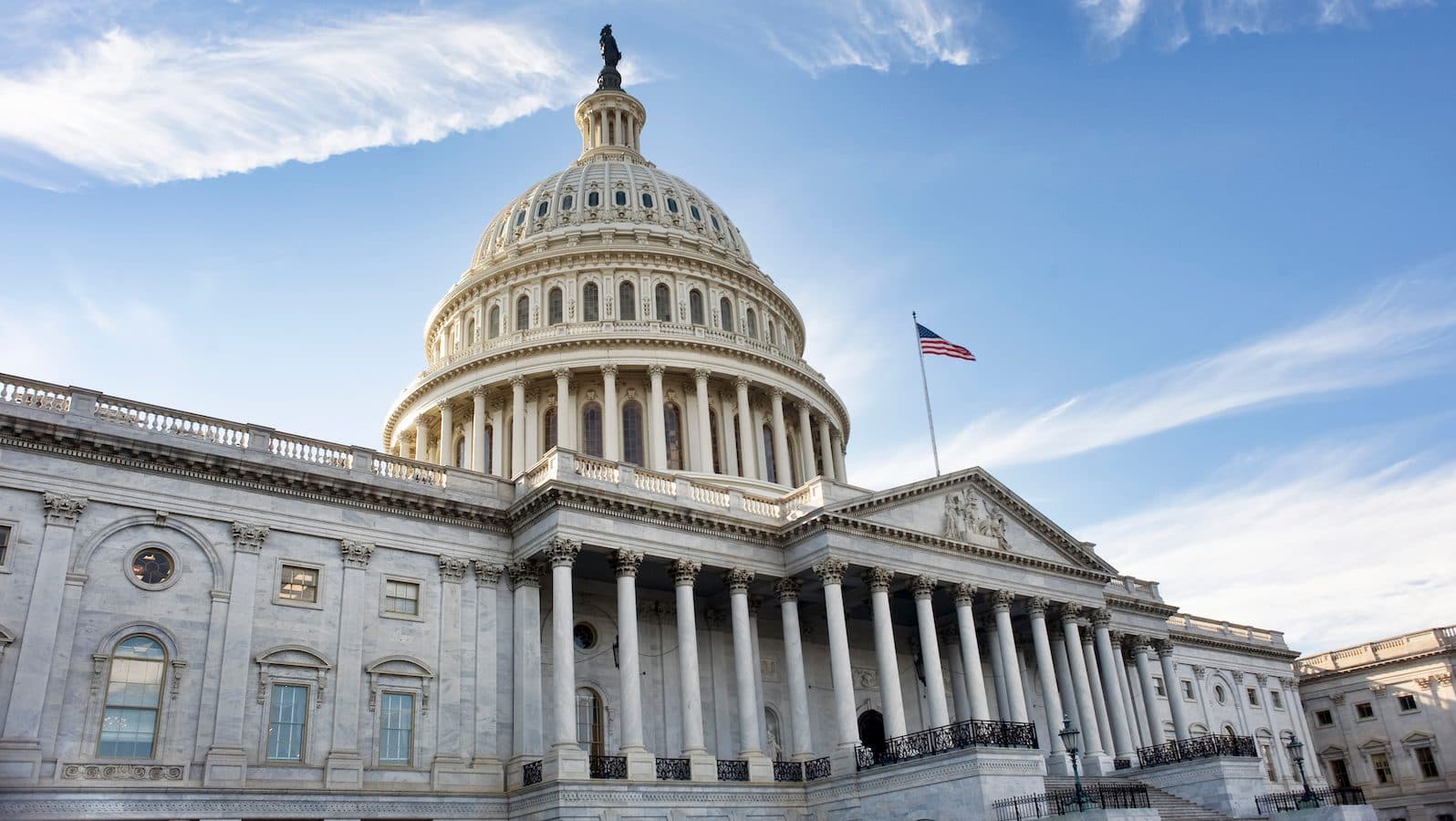Leaked Draft of US Congress’ ‘DeFi Killer’ Bill Sparks Debate
Web3 startup accelerator Alliance DAO said the bill forces projects to sacrifice decentralization

US Capitol Building | Credit: Shutterstock
- Draft shows modifications to language that drew criticism for being incompatible with DeFi
- Sam Bankman-Fried said the bill will provide customer protection without jeopardizing DeFi
Details around Bitcoin and Ethereum regulation have been “circulating secretly” in Washington, DC. Now, a copy of draft language for the Digital Commodities Consumer Protection Act (DCCPA), a bill in the US Congress, was uploaded to GitHub by crypto attorney Gabriel Shapiro. Views on the potential impact on decentralized finance (DeFi) are mixed.
The latest draft appears to cushion language perceived to be detrimental to DeFi — a category of blockchain-based solutions that aim to improve finance by replacing central intermediaries with software code.
It lays out what constitutes digital commodities, brokers, custodians, dealers and platforms. Also included in the document are rules and the core principles that apply to players in the digital commodities sphere.
Shapiro noted that the draft excludes people who develop or publish software from the term “digital commodity trading facility” — a move he said could be beneficial to the crypto industry by protecting software engineers.
But he expressed doubt over the origin of this exclusion, calling for other commentators to review the draft and voice their opinions. The attorney, general counsel at Delphi Labs, said he shared the draft in the interest of “transparency and open discussion of the future of cryptolaw.”
The bipartisan bill was introduced by Sens. Debbie Stabenow (D-MI) and John Boozman (R-AR) in August. Their legislation clarifies that bitcoin and ether are to be classified as commodities, as opposed to securities that come under the ambit of the Securities and Exchange Commission — implying that the Commodity Futures Trading Commission (CFTC) would have exclusive jurisdiction over them.
After the introduction of the bill, The Washington Post reported Boozman said in a press call that the crypto industry “almost universally” prefers to be regulated by the CFTC.
Sam Bankman-Fried believes draft bill won’t kill DeFi
FTX CEO Sam Bankman-Fried has expressed support for the framework, saying he was excited to see a “strong bill” that addresses customer protection in crypto.
On Wednesday, the crypto billionaire tweeted that he was optimistic the Stabenow-Boozman bill would not jeopardize “the existence of software, blockchains, validators, DeFi, etc.”
He also shared his thoughts in a blog on what crypto regulation should look like, specifically saying it’s important that “on-chain code and DeFi remain free and open, and uncensored.”
Even so, Bankman-Fried, chief of a centralized crypto exchange, has been criticized for supporting a bill that appears to threaten decentralized protocols.
Concerns about Congress choking decentralization
On the critical side of the debate, Web3 startup accelerator Alliance DAO disparaged the DCCPA bill, saying it forces human intermediation and compels projects to sacrifice decentralization.
The DAO reckons the bill does not clarify what a digital commodity is, or make clear the distinction between tokens that are commodities and those that aren’t.
Framework Ventures’ co-founder Vance Spencer also voiced opposition, saying the venture capital firm “opposes the DCCPA and the shadow cabal that is trying to make it a reality.”
“DCCPA kills DeFi and cedes market share to the centralized exchange that is pushing it,” Spencer added.
Most crypto exponents hope the draft can be amended to treat DeFi fairly.
Get the news in your inbox. Explore Blockworks newsletters:
- The Breakdown: Decoding crypto and the markets. Daily.
- 0xResearch: Alpha in your inbox. Think like an analyst.






